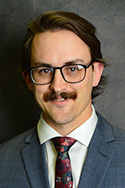Heart Failure: Time To Call The Plumber
by Johnathan Beaudrie
December 2023
It's Saturday afternoon. College football is on and, thankfully, the University of North Dakota is beating North Dakota State University in a close game. From the basement, an alarmed voice echoes over sloshing water "Honey! Call the plumber! The basement is flooding!" The water is already above the baseboards, the pipes are leaking worse than a bad goalie and the sump pump is whistling like a mad train. The bailing starts, but for every water bucket that is pumped out, two more pour in. The basement starts looking like an indoor pool.
The reason for this example is to start a conversation about a medical condition called congestive heart failure (CHF). Hearts are like sump pumps that never turn off, drawing blood in and pushing it out. Similar to the pump that can't keep up, CHF is the term for the heart's failure to circulate the body's blood.
To better understand heart failure, think about two types of rubber bands. The first type is a new strong rubber band that is so stiff it is hard to stretch. When the heart muscle becomes stiff, the normal amount of blood no longer fills the chambers leading to less volume pumping forward with each beat.
The second type is an old rubber band, saggy and having lost its ability to stretch and spring back. When the heart becomes like this old rubber band, less of the blood that comes in can get pumped out and instead, begins to pool.
 For both types of heart failure, the result is the same:
the basement floods. More water comes in than can be
pumped out, leading to a constellation of symptoms. Most
commonly, these include: leg and feet swelling, rapid
weight gain in days or a slow gain over weeks, constant
severe fatigue, difficulty breathing when walking or
lying flat, and panicked breathless nighttime awakenings.
It is important to reach out to a doctor and have a
formal evaluation as soon as these symptoms become
present.
For both types of heart failure, the result is the same:
the basement floods. More water comes in than can be
pumped out, leading to a constellation of symptoms. Most
commonly, these include: leg and feet swelling, rapid
weight gain in days or a slow gain over weeks, constant
severe fatigue, difficulty breathing when walking or
lying flat, and panicked breathless nighttime awakenings.
It is important to reach out to a doctor and have a
formal evaluation as soon as these symptoms become
present.
Heart failure is a common condition because it is linked to, and worsened by, other very common medical conditions. For instance, excessive weight, diabetes, uncontrolled high blood pressure, smoking, chronic alcoholism, and blocked heart arteries – a condition called coronary artery disease. Experts say that chemicals in cigarette smoke and even alcohol use can make the work of the heart's pump much less efficient.
How is heart failure treated? The most important step in treatment is seeing a doctor. Healthcare providers have several goals, but all are geared toward reducing the pressure put on the heart's pumping action. First up is exercise. Providers encourage everyone to exercise, but CHF patients have different exercise needs, requiring specific, individualized routines. In general, light exercise like walking 30 minutes a day as tolerated is a great starting point.
Along with encouraging exercise, providers always recommend to stop smoking and reduce alcohol consumption. Smoking and alcohol decrease the heart's function by clogging its gears and decreasing its horsepower. Another common theme in treatment is diet. For CHF patients, following a low-salt diet is important because salt retains excess fluid that overloads the heart pump. Several specific treatments come from medications: pills to keep blood pressure in the desired zone and pills to get rid of extra fluid. Although taking pills seems like the easiest part of CHF treatment, most providers will wag their finger and recommend that the best treatment includes all of the above advice.
Now for the nuts and bolt information that makes this article important to cut out and put on the fridge door. The goal is to avoid that dreaded watery basement and expensive plumbing bill. Remember, hearts are like basement sump pumps, pulling blood in and pushing it out. Those with heart failure can have a very stiff heart like a new rubber band, or one that is boggy and loose like an old rubber band. When a heart begins to fail, it can be recognized as swelling in the legs, feeling short of breath at night, or rapidly gaining weight. Some of the most effective treatment is the simplest. See a doctor. No more cigarettes, a few less beers during the football game, salt free bacon, and taking a daily walk can help keep the heart healthy. Add in a couple medications and voila, the perfect recipe to avoid the plumber.
This article also appeared in the December 14, 2023 issue of the Adams County Record.
About the Author
 Johnathan Beaudrie is a third-year medical
student at the University of North Dakota School of
Medicine & Health Sciences. He was selected as the
Hettinger participant for the school's ROME program, or
Rural Opportunities in Medical Education. The program
focuses on teaching student doctors the importance of
rural newspapers as a way to share health information. As
a future rural healthcare leader, Beaudrie has written
this column to provide health information for his ROME
community. The information is not for diagnosis or
treatment and should not be used in place of previous
medical advice provided by a licensed provider.
Johnathan Beaudrie is a third-year medical
student at the University of North Dakota School of
Medicine & Health Sciences. He was selected as the
Hettinger participant for the school's ROME program, or
Rural Opportunities in Medical Education. The program
focuses on teaching student doctors the importance of
rural newspapers as a way to share health information. As
a future rural healthcare leader, Beaudrie has written
this column to provide health information for his ROME
community. The information is not for diagnosis or
treatment and should not be used in place of previous
medical advice provided by a licensed provider.
